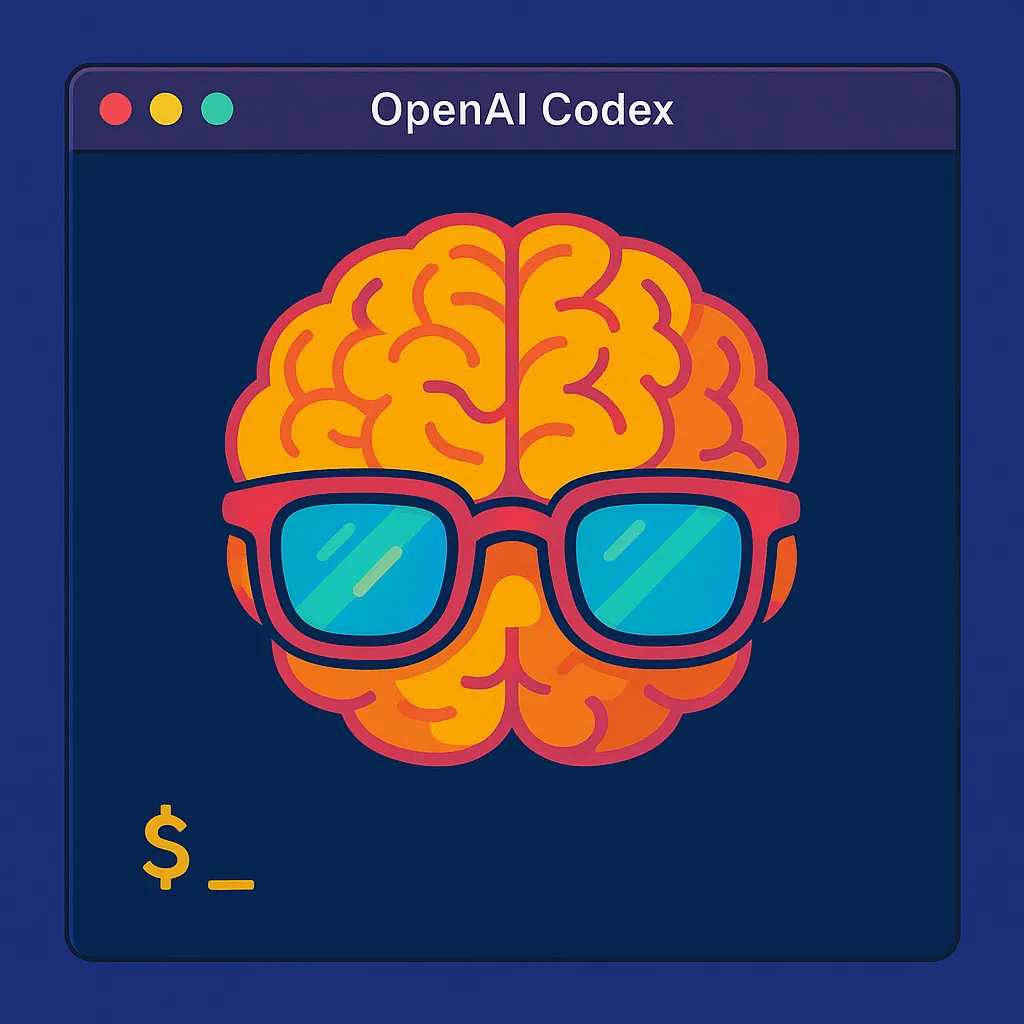Reimagining Software Engineering with Codex
Imagine being a developer under pressure—feature requests piling up, bugs to squash, and code reviews to manage. Now imagine an AI teammate that writes production-ready code, debugs with precision, and drafts pull requests autonomously, freeing you to focus on strategic architecture and design. That’s what OpenAI’s Codex delivers: an AI-powered engineering agent redefining software development.
Built on codex-1, a variant of OpenAI’s o3 model, Codex is far more than autocomplete. It’s an intelligent engineering collaborator—deeply integrated, highly contextual, and designed to elevate developer productivity. From solo engineers to enterprise DevOps teams, Codex is accelerating how we build and maintain software.
What Makes Codex Different
Codex isn’t another code-generation plugin. It’s an agentic, cloud-based collaborator that understands your codebase and participates in your workflow. Here’s how it stands apart:
- Cloud-Native Execution: Codex operates in secure, sandboxed environments in the cloud, running resource-intensive tasks without burdening your local machine.
- Concurrent Tasking: Whether refactoring legacy code or generating unit tests, Codex handles multiple operations in parallel—reducing turnaround time significantly.
- Deep Context Awareness: Integrated directly with GitHub, Codex learns your repo’s structure and conventions to generate contextually aligned code.
- Security-Centric by Design: Codex executes within air-gapped containers with no outbound internet access, ensuring your intellectual property stays protected.
From startups to global tech leaders like Cisco, Temporal, and Kodiak, Codex is already demonstrating measurable impact. Kodiak, for instance, is using Codex to optimize debugging in autonomous vehicle systems, while Temporal has automated the generation of comprehensive test suites—drastically improving efficiency.
Codex in Action: A Developer-Centric Workflow
Using Codex feels like pair programming with a highly skilled peer. Embedded in the ChatGPT sidebar, it offers a frictionless experience for developers at every level. The flow is simple:
- Natural-Language Prompts: Describe a task like “Add OAuth login to my Node.js app” or “Refactor this component for performance.”
- Select a Mode: Choose “Code” to generate logic or “Ask” to query your repo, e.g., “Why is this loop causing memory spikes?”
- Track Progress Transparently: Codex handles tasks ranging from minutes to half an hour, updating you with logs, test outputs, and terminal feedback.
- Customize with AGENTS.md: Define your team’s architectural preferences, frameworks, testing tools, and code conventions in a markdown file—Codex aligns accordingly.
In one case, a developer requested Codex to “Clean up this React component and add Jest unit tests.” Codex delivered a polished version and test suite within 15 minutes. Minor edits later, the code was production-ready—cutting down hours of engineering effort.
The Developer Value Proposition
Codex is transforming software development from a mechanical task into a creative, design-driven process. As Mitch Ashley of The Futurum Group puts it, agentic AI is shifting engineers toward more strategic contributions like architectural design, system orchestration, and stakeholder communication.
Here’s how developers are benefiting:
- Accelerated Velocity: Codex automates boilerplate and routine tasks, allowing developers to ship features faster.
- Cross-Functional Empowerment: Designers and PMs can execute basic code changes, reducing dependency bottlenecks.
- Increased Code Integrity: With built-in testing and alignment to repo standards, Codex helps maintain high-quality output.
- Scalable Across Teams: Large-scale projects benefit from Codex’s ability to operate across services—handling CI configurations, schema migrations, and more.
For example, Cisco’s DevOps team slashed configuration script deployment times by 40% using Codex. Meanwhile, a solo founder integrated a Stripe payment gateway using Codex in a single day—an effort that would traditionally span a week.
A New Paradigm for Development
OpenAI envisions Codex as a hybrid coding partner—equally adept at real-time collaboration and asynchronous task delegation. This duality redefines how developers interact with their tools.
Upcoming enhancements will deepen Codex’s utility:
- Tighter GitHub Integration: Automated pull request generation and intelligent code reviews.
- Issue Tracker Connectivity: Sync with platforms like Jira or Linear to associate coding tasks with sprints.
- Smarter CI/CD Support: Generate and validate build pipelines directly within your repo.
Imagine assigning Codex a Jira ticket on Monday and receiving a complete implementation, with documentation and passing tests, by Tuesday. That’s not speculation—it’s the direction Codex is actively shaping.
Trust, Security, and Guardrails
Codex is designed with rigorous safeguards. Each execution happens in an isolated, internet-free environment, ensuring your source code and sensitive data never leave the sandbox. OpenAI has also trained Codex to decline requests involving insecure or malicious patterns.
Importantly, Codex provides full auditability—from log trails to test results—allowing developers to inspect and verify outputs before merging. This transparency is vital in treating Codex as a teammate, not a black box.
Onboarding Codex: How to Start
Codex is currently accessible to ChatGPT Pro, Team, and Enterprise users, with support for Plus and Edu tiers on the horizon. During the research preview, you can try Codex at no extra cost—though usage-based pricing will apply post-launch.
CLI pricing is clear: 6 per million output tokens, with substantial savings through prompt caching. Here’s how to begin:
- Log in to ChatGPT and link your GitHub repo.
- Enable the Codex sidebar and assign your first tasks.
- Create an AGENTS.md to configure Codex’s behavior for your repo.
Whether you’re building, testing, or troubleshooting, Codex is engineered to make development more intuitive and impactful.
Codex in a Competitive Landscape
Codex is part of a broader shift toward intelligent software agents. Rivals like Claude Code by Anthropic and Gemini Code Assist from Google are pushing in the same direction. However, Codex’s native integration with ChatGPT and its depth in language comprehension give it a distinctive advantage.
Its ability to parse ambiguous prompts and generate highly contextual, well-structured code elevates it beyond templated assistance—it feels like working with a skilled peer. As OpenAI’s Greg Brockman said, “Codex feels like a co-worker with its own computer.”
Considerations and Responsible Adoption
Like any transformative tool, Codex comes with trade-offs. While it thrives on clear, structured prompts, ambiguous or exploratory work may still require human intuition and experience. Key considerations include:
- Learning Curve: Teams must invest in learning how to phrase effective prompts and define workflows.
- Skill Balance: Overdependence on AI for routine tasks may dull developer fundamentals over time.
- Cost Awareness: As metered pricing matures, optimizing usage will become a priority for teams.
Yet, the return on investment—faster delivery, higher code quality, and reduced engineering overhead—makes Codex an incredibly compelling asset for forward-thinking software teams.



